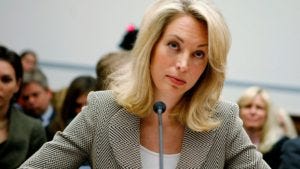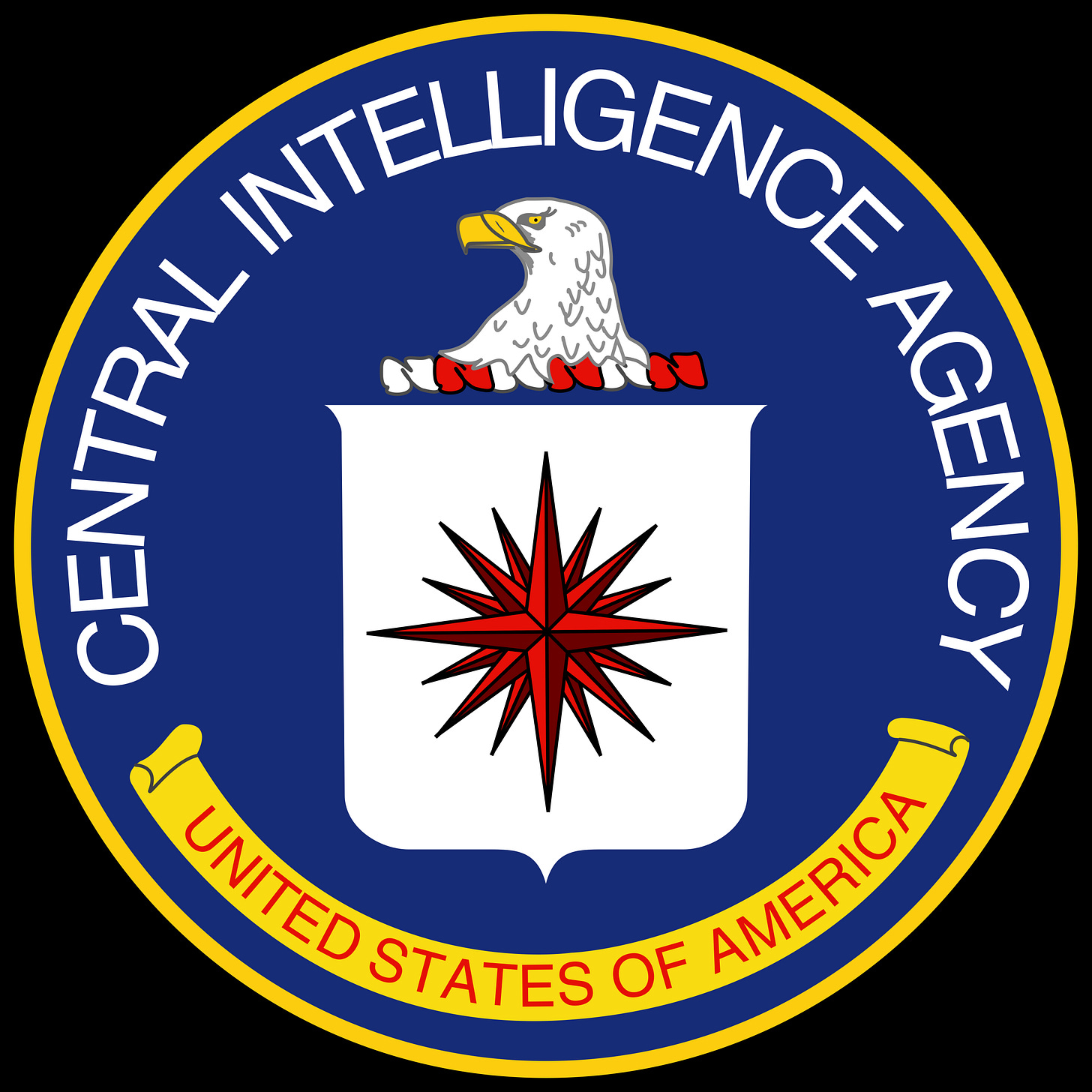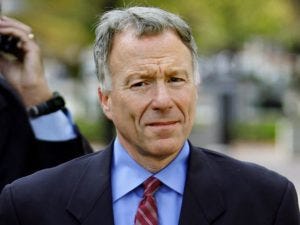The Corruption Underlying the Scooter Libby Pardon
Last week president Trump pardoned Scooter Libby, the former chief of staff to vice president Dick Cheney. Libby was convicted in 2007 of obstruction of justice, perjury, and false statements in connection with the investigation into the leak of the identity of a covert CIA agent, Valerie Plame. In his statement announcing the pardon, Trump said he did not know Libby, “but for years I have heard he was treated unfairly.” Since his conviction more than ten years ago, Libby had faded into relative obscurity. He never served his 30-month sentence because it was commuted by president Bush – although Bush, the president most knowledgeable about Libby’s activities, did not see fit to pardon him. He already had his voting rights restored and had been re-admitted to the practice of law. Unlike controversial former Arizona Sheriff Joe Arpaio, whom Trump pardoned last year, Libby was not facing any imminent court proceedings. So why this pardon, and why now? It appears to have nothing to do with Libby and everything to do with president Trump’s ongoing assault on the Mueller investigation and the rule of law.

Valerie Plame Wilson
The CIA Leak Case
Some may not recall the details of the events that led to Libby’s conviction, but the investigation known as the CIA leak case, or “Plamegate,” riveted Washington in the mid-2000s. It began with president George W. Bush’s State of the Union address in 2003, when his administration was trying to build the case for invading Iraq. Bush’s speech included what later became known as the “sixteen words:" “The British government has learned that Saddam Hussein recently sought significant quantities of uranium from Africa.” That claim was one piece of evidence in the Bush administration’s argument that military action was necessary because Hussein possessed weapons of mass destruction. The United States invaded Iraq in March 2003 and no WMDs were found. Beginning in May 2003, a series of press reports appeared claiming the sixteen words were false and the administration knew it when Bush gave the speech. Those reports said the CIA had sent a former ambassador to Africa in 2002 to investigate the uranium claims and he had concluded they had no basis. These stories culminated with an op-ed in the New York Times on July 6, 2003 by the former ambassador himself, Joseph Wilson. Wilson wrote he had been sent to Niger in 2002, had concluded that the claims about Hussein seeking uranium were untrue, and had reported this back to the CIA. During this time the White House was in full crisis-control mode, trying to combat the firestorm of allegations that the administration had manipulated intelligence to lead the country into war. The evidence at his trial demonstrated that Libby was at the forefront of this damage control effort, speaking to numerous people within the White House, State Department, and CIA to learn the details of Wilson’s trip to Africa. During those conversations he learned from multiple sources that Wilson’s wife, Valerie Plame, worked at the CIA. Libby and other administration officials also had numerous conversations with members of the press about Wilson and Plame. The White House was trying to convince reporters that Wilson was not credible or qualified and had only been sent to Africa because his wife worked at the CIA. On July 14, 2003, Robert Novak wrote a column for the Washington Post adopting the White House line and seeking to discredit Wilson’s claims. He wrote, “Wilson never worked for the CIA, but his wife Valerie Plame is an agency operative on weapons of mass destruction.” Prior to that column, Plame’s employment with the CIA was classified and not publicly known. Revealing the name of a covert CIA agent can be a crime under certain circumstances, and in September 2003 the FBI launched an investigation into who had leaked Plame’s name to the press.

The Investigation
The FBI interviewed Libby about the leak of Plame’s identity in October and November, 2003. During those interviews, Libby said that during a conversation with Tim Russert of NBC News in July, Russert had informed Libby that Wilson’s wife worked for the CIA. Libby told the FBI he was surprised to hear that from Russert, because at the time he did not recall that he had already learned about Plame through his own intensive investigation. Libby also said that during a conversation with reporter Matt Cooper of Time magazine, he told Cooper other reporters were saying Wilson’s wife worked at the CIA but Libby did not know whether that was true. At the time of Libby’s FBI interviews, the investigation was being handled by the Department of Justice under Bush’s attorney general, John Ashcroft. In response to growing political pressure, in December 2003 Ashcroft recused himself. Acting Attorney General James Comey (yes, that James Comey) then appointed Patrick Fitzgerald, the U.S. Attorney for the Northern District of Illinois, as special counsel to conduct the investigation. (Full disclosure: Fitzgerald is a law school classmate of mine, although we were not close in law school and to my recollection have spoken only once in the 30-plus years since we graduated.) After Fitzgerald took over the investigation, Libby testified twice in the grand jury. He repeated essentially the same stories concerning his conversations with Russert and Cooper. Prosecutors alleged that this was part of an attempt to cover up the Bush White House's active and persistent role in "outing" Plame to the press which, even if ultimately not criminal, would have been very damaging politically. Libby's story allowed him to admit that he spoke to reporters but deny any responsibility for knowingly disclosing Plame’s CIA employment – he claimed he was merely repeating unconfirmed gossip. Libby was ultimately indicted in October 2005 for obstruction of justice, two counts of false statements to the FBI, and two counts of perjury. Following a jury trial, he was convicted on four of the five counts in March of 2007. He was sentenced to thirty months in prison, but president Bush commuted his sentence and he never served any time.

I. Lewis "Scooter" Libby
Libby’s Defense
Libby did not testify at his trial, but the theory of the defense was a failure of recollection. The defense claimed that despite Libby's active work for several weeks investigating the crisis consuming the White House, when he spoke to reporters merely days later he had forgotten that information. In the grand jury he even went so far as to testify that he told Time's Cooper he wasn’t even sure whether Wilson had a wife. Prosecutors presented a parade of witnesses, several of them other Bush administration officials and political allies of Libby, who testified about their conversations with him concerning Wilson and Plame while the White House was scrambling to respond to the Africa story. Russert also testified and denied telling Libby about Wilson's wife. The evidence showed Libby was deeply involved in investigating the matter and trying to control the damage. It was simply unbelievable, prosecutors argued, that someone accomplished and capable enough to rise to the level of chief of staff to the vice president spent weeks investigating Wilson and Plame and then failed to remember it mere days later when speaking to reporters. The jury agreed. (As an aside: conservatives who support Libby typically express outrage that he was not prosecuted for leaking Plame’s name but “only” for perjury, obstruction, and lying to the FBI. This has always baffled me. Fitzgerald found that Libby, a senior White House official, tried to obstruct a federal criminal investigation into the leak of Plame’s identity. Given this evidence, Fitzgerald did what any good prosecutor would do: prosecute the attempted cover-up to protect the integrity of the justice system and send a message to others. Even if the underlying conduct being investigated ends up not being criminal, you don't get a pass on lying to the FBI about it or lying in the grand jury. That should be doubly true if, like Libby, you work at the highest levels of the White House.)
Judith Miller’s Changed Recollection
Part of the purported reason for granting the pardon was that a witness at trial, former New York Times reporter Judith Miller, has supposedly recanted her testimony. Miller, who was best known for a series of stories in the Times that bolstered the administration’s case for invading Iraq, went to jail for three months in 2005 when she refused to identify Libby as her source for information about Plame. Libby finally released her from her pledge of confidentiality, and Miller testified in the grand jury and at trial. Ten years later, in a new book, Miller said she now believed she had been misled by prosecutors and that her testimony at the trial was incorrect. Those assertions, of course, have never been cross-examined or tested. When Trump granted the pardon claiming Libby had been treated "unfairly," Fitzgerald issued a statement rejecting Miller’s claims and any suggestion that any witness was misled or information withheld. Fitzgerald always had a sterling reputation when he was with DOJ as an outstanding, by-the-book prosecutor. Miller is a close friend of Libby’s and certainly no fan of Fitzgerald, who had her jailed for contempt. She waited ten years, until she was plugging a new book, to make her supposed recantation. Her claim that her memory of conversations with Libby was better in 2015 than it was in 2005 is implausible. If the question boils down to Fitzgerald’s credibility vs. Miller’s, I don’t think that’s even a close call. In any event, Miller overstates her importance to the case. Libby was convicted based on his lies about conversations with Russert and Cooper, not with Miller. Miller was only one of a number of witnesses who testified about LIbby's deep involvement with investigating and discussing Plame and Wilson. Her attempt to revisit her sworn testimony more than a decade later provides no sound basis to question the validity of Libby’s conviction.
The Corruption Underlying the Libby Pardon
It almost goes without saying, but this pardon did not follow the normal process of review within the Department of Justice. There is an entire office at DOJ, the Office of the Pardon Attorney, tasked with reviewing applications for clemency and making recommendations to the president. Trump, of course, bypassed that process. No doubt he will soon be pardoning people by Tweet. It’s safe to say Trump is not personally concerned about Libby. As he said in his statement, he doesn’t even know him. So why this pardon, and why now? Presidents typically grant pardons in batches, frequently around the holidays or when they are getting ready to leave office. There was certainly no urgency about the Libby pardon that would explain why it needed to be done now, and outside of the normal DOJ channels. But although the pardon is largely symbolic for Libby, it serves a dual purpose for president Trump. First, it sends a clear signal to those who might consider cooperating against the president, such as Paul Manafort, Michael Cohen, and Michael Flynn: stay strong, don’t cooperate, and I’ll pardon you if necessary. When Trump’s attorney John Dowd recently resigned, there were reports that he had discussions last year with lawyers for Flynn and Manafort about possible pardons. Pardoning Libby reinforces that same message from the president: if you’ve got my back, I’ve got yours. The supposed rationale for the pardon also feeds into the president’s overall defense strategy of attacking the Mueller investigation as an illegitimate “witch hunt.” Trump didn’t pardon Libby by saying his long record of public service and otherwise exemplary career made him deserving of clemency. Instead, the claim was that Libby had been treated unfairly by an overzealous prosecutor. And not just any prosecutor, but a special counsel who was appointed by none other than James Comey. This pardon thus furthers the defense narrative that special counsels can’t be trusted, that they are simply out to “get” anyone they can, and that they unfairly charge people with “process crimes” like perjury and obstruction. This is exactly what Trump wants the public to believe about the Mueller investigation. He will point to the Libby case as a supposed example of the unfairness he and his own people are now allegedly facing. The pardon also indirectly attacks the integrity and competence of Comey, who appointed Fitzgerald -- which of course also feeds directly into the president’s strategy. Libby was not a victim who was treated "unfairly." He had a fair jury trial with excellent defense counsel in front of a smart, no-nonsense judge, Reggie Walton (who was appointed by president George W. Bush, by the way). Judge Walton, who said at sentencing that the evidence of Libby's guilt was "overwhelming," had no problem with the government's case. (Walton did, however, take issue with Bush's decision to commute Libby's sentence, and took the unusual step of criticizing that action in a judicial opinion.) It's false for Trump to characterize Libby's pardon as simply correcting a past injustice. The true purpose appears to be something far darker. Scooter Libby is widely regarded as the fall guy in the Plame affair. He remained silent, took the rap, and protected his president and the administration. He’s a stand-up guy. Those are traits president Trump likely admires. And Trump may believe he needs such people around him right now. What better way to make sure they know that if they protect him, he will return the favor. Trump had the power to grant this pardon -- but it may be one of the most transparently corrupt things he has done since taking office.
Like this post? Click here to join the Sidebars mailing list

